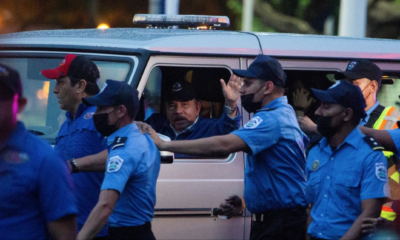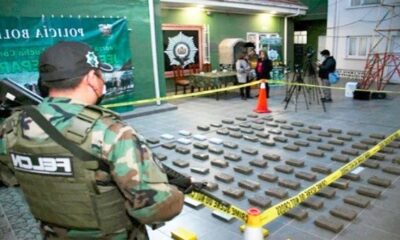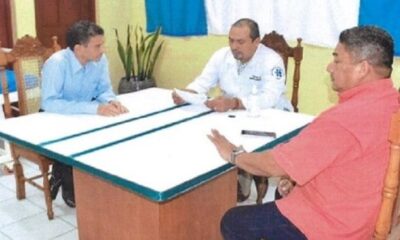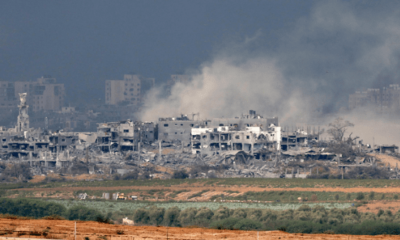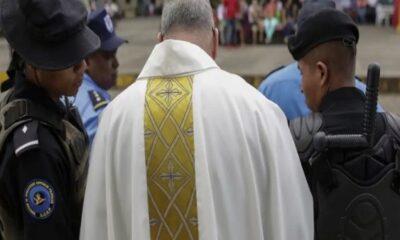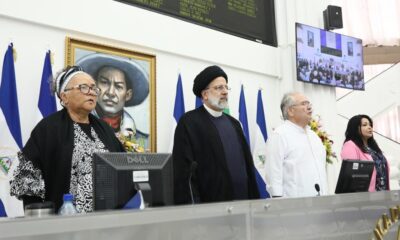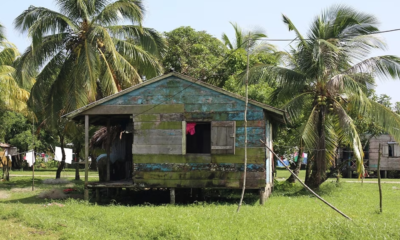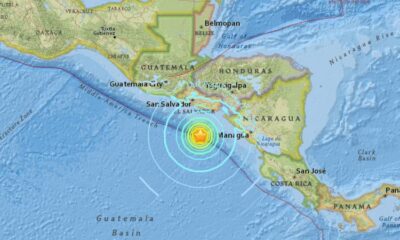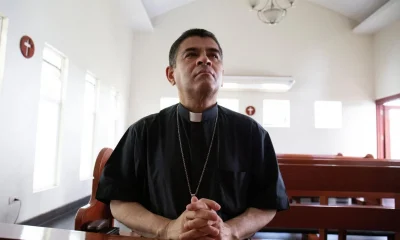Central America
Costa Rica receives nuns expelled from Nicaragua by Daniel Ortega
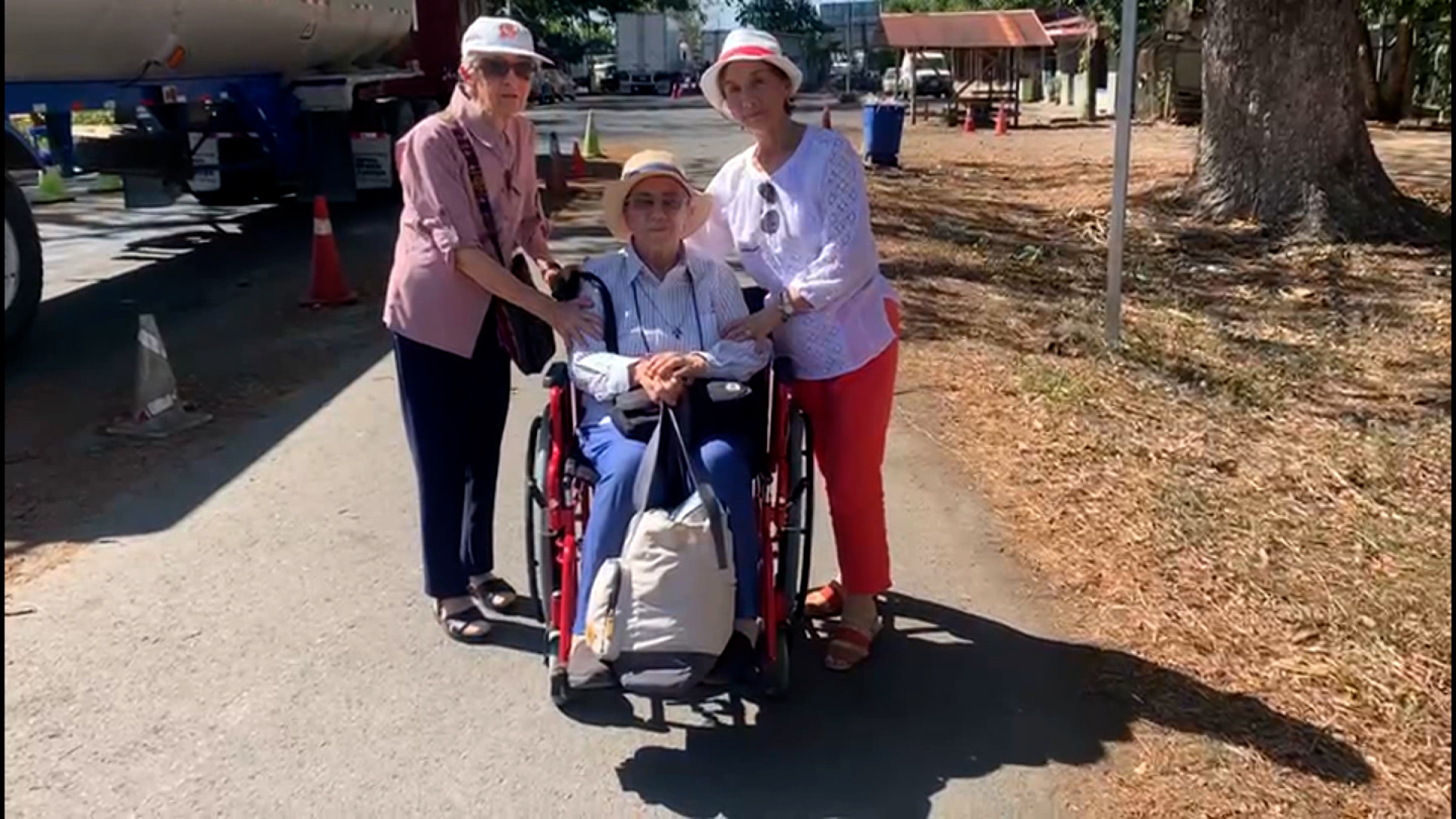
April 13 |
Costa Rica received on Wednesday two nuns of the Dominican Congregation of the Annunciation who left Nicaragua after being expelled by the government of President Daniel Ortega.
The bishop of the Diocese of Tilarán-Liberia, Monsignor Manuel Eugenio Salazar, expressed his willingness to provide any support required by these nuns, who also have Costa Rican nationality, as well as their families and the rest of the congregation.
“The two religious sisters of the Dominican congregation of the Annunciation, Isabel and Cecilia Blanco Cubillo, expelled from Nicaragua, were received by their sister Violeta Blanco Cubillo together with her husband, Carlos Vargas, after 2 p.m., today, Wednesday 12”, informed the diocese in a communiqué.
The women were in charge of the Lopez Carazo Foundation Home for the Elderly, in the city of Rivas, in the south of Nicaragua, on the Pacific coast. However, the Ortega government gave the nuns 72 hours to leave the country, reported Confidencial, directed by journalist Carlos Fernando Chamorro.
Along with the Costa Rican nuns there was also a Salvadoran woman in charge of the Home for the Elderly.
The Nicaraguan government has not made any statement on the expulsion of the nuns.
Voice of America asked for comments from the expelled missionaries, but they declined to talk about it.
The López Carazo home for the elderly was founded in 1916, according to local media, and the land where it is built was donated by the family of former president Evaristo Carazo.
Nicaragua is going through a political crisis which on April 18 will be five years old, with no way out in sight.
Ortega has undertaken a persecution against the Catholic Church, according to human rights organizations, and has expelled the Vatican envoy in Nicaragua, Waldemar Stanislaw Sommmertag. He is also keeping in jail an important bishop accused of “emitting false news”, among other crimes.
Central America
Nicaragua’s Ortega and Murillo Mourn Pope Francis, Acknowledge ‘Difficult’ Relationship

Nicaraguan President Daniel Ortega and Vice President Rosario Murillo, who also serve as co-leaders of the country, expressed their condolences on Monday following the death of Pope Francis, acknowledging that their relationship with the late pontiff had been “difficult” and “troubled.” Nicaragua officially suspended diplomatic ties with the Vatican during his papacy.
“Our relationship, as Nicaraguans who are believers, devoted and faithful to the doctrine of Christ Jesus, was difficult and troubled—unfortunately shaped by adverse and painful circumstances that were not always understood,” Ortega and Murillo wrote in a message of condolence.
“Despite the complexity and hardships, despite the manipulation we all know occurred, despite everything, we kept our hope alive through Christian faith,” they continued. “We understood the distance, and above all, the complicated and strained communication that prevented better relations. We also recognized the confusion caused by strident voices that disrupted any attempt at genuine interaction.”
Pope Francis had previously compared the Ortega regime to communist dictatorships and even to Hitler, a remark that further strained relations between Managua and the Holy See.
Central America
Cardinal Rodríguez to Attend Funeral of Pope Francis: “He Was Very Dear to Me”

Honduran Cardinal Óscar Andrés Rodríguez announced on Monday that he will attend the funeral services of Pope Francis, who passed away at the age of 88 at his residence in Casa Santa Marta due to a stroke.
“We will be there throughout the novena and then, God willing, at the burial,” Rodríguez said in a phone interview with HRN Radio in Tegucigalpa, apparently calling from Spain.
He added that the last time he saw Pope Francis was in October 2024, during and at the end of that year’s synod, and that they remained in contact through email. “Sometimes, the Pope would even call me,” said Rodríguez, who was born on December 29, 1942, and was made a cardinal by Pope John Paul II on February 21, 2001.
Rodríguez expressed deep sorrow over the passing of Pope Francis, saying: “He was a very dear person to me.”
However, he also shared a message of hope, pointing out that the Holy Father passed away during Easter: “This is a sign. He gave his life completely like the Lord Jesus, and though he died, we believe in faith that he has risen, now with Christ in eternal life.”
Rodríguez, who for ten years coordinated the Vatican’s Council of Cardinals, was one of the eight cardinals selected by Pope Francis to help govern the Catholic Church and reform the Roman Curia.
In January 2023, upon turning 80, Rodríguez stepped down as Archbishop of Tegucigalpa, and Pope Francis appointed Spanish priest José Vicente Nácher Tatay as his successor.
Central America
Senator Van Hollen Meets with Deported MS-13 Member in El Salvador; Trump and Bukele React

U.S. Democratic Senator Chris Van Hollen, representing the state of Maryland, held a meeting in El Salvador with deported MS-13 gang member Kilmar Ábrego García, a member of the criminal group classified by the U.S. government as a terrorist organization.
“Kilmar Ábrego García, miraculously resurrected from the ‘extermination camps’ and ‘torture chambers,’ now sipping margaritas with Senator Van Hollen in the tropical paradise of El Salvador!” wrote President Nayib Bukeleon X (formerly Twitter), sharing photos of Van Hollen, Ábrego García, and a lawyer sitting together at a Salvadoran hotel.
The deported gang member is seen wearing a plaid shirt and a flat-brimmed cap, seated at a table with glasses and coffee cups. The senator also shared images of the meeting on his own social media accounts.
Bukele reaffirmed that Ábrego will remain in El Salvador and will not be returned to the United States.
“Now that his health has been confirmed, he has earned the honor of remaining under the custody of El Salvador,” Bukele added.
Former U.S. President Donald Trump criticized the senator’s meeting with Ábrego on Truth Social, calling Van Hollen “a fool” for advocating for Ábrego’s return to the U.S.
-

 Central America4 days ago
Central America4 days agoSenator Van Hollen Meets with Deported MS-13 Member in El Salvador; Trump and Bukele React
-

 Central America3 days ago
Central America3 days agoCardinal Rodríguez to Attend Funeral of Pope Francis: “He Was Very Dear to Me”
-

 Central America3 days ago
Central America3 days agoNicaragua’s Ortega and Murillo Mourn Pope Francis, Acknowledge ‘Difficult’ Relationship
-

 International5 days ago
International5 days agoThousands rally nationwide against Trump’s threat to U.S. democracy
-

 International4 days ago
International4 days agoPope Francis Appears for Easter Blessing, Calls for Peace and Religious Freedom
-

 International3 days ago
International3 days agoDominican Republic Declares Three Days of Mourning for Pope Francis
-

 International3 days ago
International3 days agoDHS Secretary Kristi Noem’s Purse Stolen in D.C. Restaurant Heist
-

 International1 day ago
International1 day agoFrom the transfer of the coffin to the funeral, three days to say goodbye to Pope Francis
-

 International2 days ago
International2 days agoPope Francis and Trump, a relationship of disagreements marked by migration
-

 International3 days ago
International3 days agoPope Francis: The Quiet Architect Behind the U.S.-Cuba Thaw
-

 International2 days ago
International2 days agoWithin Francis’ private wake: respect and prayer for the deceased pope
-

 International1 day ago
International1 day agoModi returns to India and shortens his visit to Saudi Arabia after a deadly attack in Kashmir
-

 International2 days ago
International2 days agoThe pope last called the Gaza parish on Saturday and asked about the children
-

 International2 days ago
International2 days agoTrump’s emissary will visit Russia this week for consultations on the arrangement in Ukraine
-

 International2 days ago
International2 days agoAmerican universities and colleges sign a letter against Trump’s policy
-

 International1 day ago
International1 day agoA very heterogeneous and divided conclave will elect the new pope
-

 International2 days ago
International2 days agoCardinal Becciu’s enigma: will he enter the conclave?
-

 International2 days ago
International2 days agoBurma’s military junta extends ceasefire until April 30 due to the earthquake
-

 International2 days ago
International2 days agoThe Government of Colombia presents twelve questions that it will propose in a popular consultation to promote its reforms
-

 International2 days ago
International2 days agoA candidate for the Supreme Court denounces an unequal dispute in the judicial election of Mexico
-

 International1 day ago
International1 day agoMaradona’s house arrest is again a focus of tension in the trial for his death
-

 International1 day ago
International1 day agoThe Peruvian Public Ministry denounces the former attorney general for an alleged corruption case
-

 International1 day ago
International1 day agoEl Salvador formalizes the proposal for the exchange of Venezuelan deportees, according to Bukele
-

 International2 days ago
International2 days agoRoyal quinoa, the superfood that grows in front of the largest salt flat in the world in Bolivia
-

 International1 day ago
International1 day agoA judge orders the Trump Government to restore Voice of America services
-

 International2 days ago
International2 days agoInternational leaders begin to confirm their presence at Pope Francis’ funeral
-

 International2 days ago
International2 days agoChurch charges ceased or resigned in the papacy of Francis for cases of pedophilia
-

 International1 day ago
International1 day agoDonald Trump will visit Saudi Arabia, Qatar and the United Arab Emirates in mid-May
-

 International1 day ago
International1 day agoThe president of the World Bank underlines his intention to lift his veto on nuclear energy
-

 International1 day ago
International1 day agoMarco Rubio reorganizes the State Department to eliminate offices and jobs
-

 International1 day ago
International1 day agoThe Brazilian Supreme Court opens trial against six others accused of leading the coup attempt
-

 International1 day ago
International1 day agoA judge in the United States stops the deportation to El Salvador of a hundred Venezuelans


















